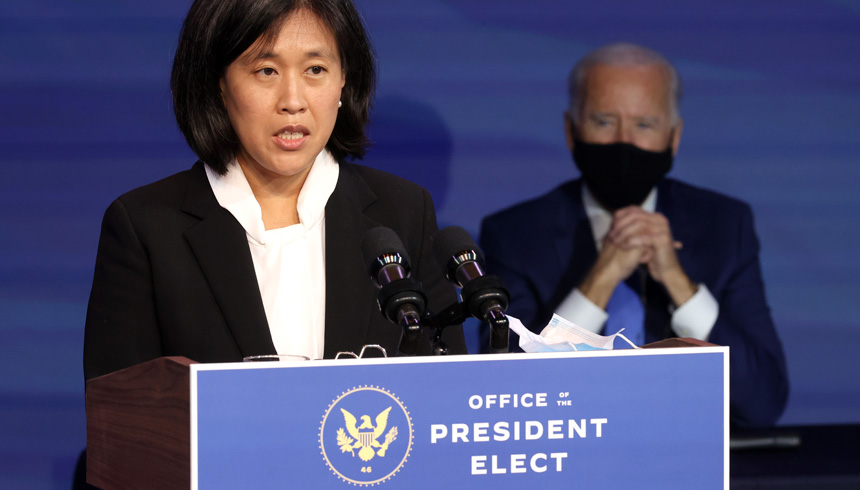U.S.-Asia Business
US-China Market Watch: US-China Trade, China Unicom, Metaverse Entertainment
By

Your monthly roundup of the latest US-China business and industry news.
U.S.-China trade talks in “difficult” stage
President Biden has stated that the current tariffs on China will largely remain in place, since Beijing failed to meet their purchase commitments under the initial Phase One deal. China reached only about 60% of its targeted $200 billion in additional goods.
President Biden did state that United States Trade Representative Katherine Tai is currently working on negotiations with China, but that the administration’s main goal is to protect the U.S. economy from the negative effects of China’s trade policies.
Representative Tai said that her team will “engage robustly” with China but that trade talks between the two nations are currently in a “difficult stage.” A bipartisan group of 140 U.S. House of Representatives members have urged Representative Tai to revive and expand the list of Chinese goods excluded from U.S. tariffs, citing the detrimental cost to American manufacturers. The lawmakers stated that the current list in Tai’s proposal is too narrow and only covers 1% of the original exclusion applications, which has hit small and medium-sized businesses particularly hard.
FCC blocks China Unicom from U.S. market
The Federal Communications Commission voted to block Chinese state-owned firm China Unicom from offering telecommunication services in the United States. The move marks another step by regulators to protect the U.S. against national security concerns first flagged by officials several years ago. The FCC has also started similar proceedings against two other Chinese companies, Pacific Networks Corp. and ComNet (USA) LLC. The FCC has already banned China Telecom from operating in the U.S. in 2020 and denied China Mobile’s application to provide telecom services in the U.S. in 2019.
China Unicom has been operating in the U.S. since 2002. In a written response, China Unicom says it has complied with “relevant U.S. laws and regulations” over the past 20 years. China’s foreign ministry has also said that the FCC’s move was a “serious violation” against international trade rules.
WTO lets China impose $645 million tariffs on U.S.
The World Trade Organization has authorized China to impose $645 million in compensatory tariffs against the United States, 10 years after China first went to the WTO in 2012. China had challenged anti-subsidy tariffs the U.S. had imposed between the years of 2008 and 2012, on products such as solar panels and steel wire, and initially wanted to impose $2.4 billion in tariffs on the U.S. goods. In 2019, the WTO had also given China the right to $3.58 billion in retaliatory tariffs against the U.S.
DHowever, the amount awarded to China still pales in comparison to the $300 billion in tariffs the Trump administration had levied, most of which still remain under President Biden.
Starlight Media exec launches new Metaverse Entertainment
Peter Luo, CEO of Southern California-based Starlight Media, has launched a new company called Metaverse Entertainment. The venture will be a subsidiary under Stars Collective, an organization that Luo launched in 2020 to support diverse filmmakers from around the world. Metaverse’s purpose is to “provide storytellers and brands with a simple entry point to gaining exposure to virtual worlds through a model that will generate recurring revenue.”
Metaverse wants to create an entertainment ecosystem with NFTs (non-fungible tokens) by the end of this year. The ecosystem will include everything from NFT creation, to smart contracts, distribution, and sales, as well as other “speculative” functions.
BYD and XPeng post sales gains
Two Chinese electric vehicle companies, BYD and XPeng, had increased sales in China for the month of January after posting major gains in 2021. Warren Buffett-backed BYD sold more than 93,000 new energy vehicles (NEVs) in January, which is more than four times the number of NEVs sold during the same period in 2020. For 2021, BYD sold 603,782 NEVs, which was a 218% increase from the previous year.
Alibaba Group-backed XPeng had a 115% year-over-year increase in January, moving nearly 13,000 EVs that month. In 2021, XPeng experienced a 263% year-over-year increase in sales, delivering 98,155 vehicles.

